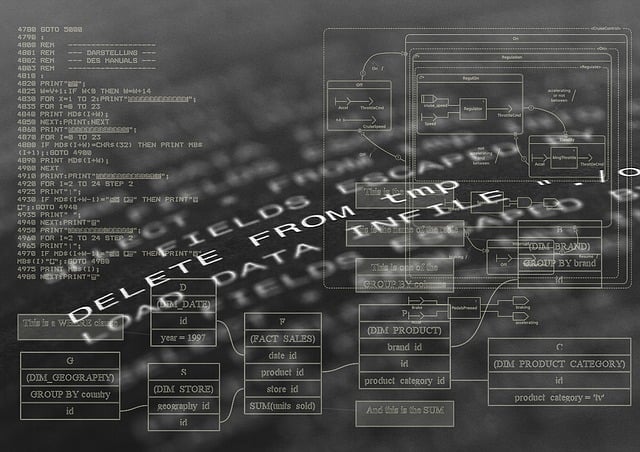Partial Hospitalization in Rochester, NH: Navigating Recovery Options
Partial Hospitalization Programs in Rochester, NH, offer a flexible and intensive treatment option f…….
Over 15% US adults have used prescription painkillers not prescribed to them.
Welcome to an in-depth exploration of Partial Hospitalization Programs (PHPs) specifically tailored to Rochester, New Hampshire. PHPs represent a specialized approach to mental health care, offering intensive treatment while allowing individuals to maintain some level of independence by living at home rather than in a traditional inpatient setting. This article aims to provide a comprehensive understanding of how these programs function, their benefits, challenges, and global impact, especially within the context of Rochester, NH. By delving into various aspects, we will equip readers with valuable insights into this innovative aspect of healthcare delivery.
Partial Hospitalization Programs are outpatient mental health services provided at a specialized facility for several hours each day, typically from 4 to 6 hours, 5 days a week. These programs are designed for individuals who require more intensive treatment than traditional outpatient therapy but cannot or do not wish to commit to an inpatient stay. In Rochester, NH, PHPs primarily cater to adults struggling with severe mental health conditions such as depression, anxiety disorders, bipolar disorder, and post-traumatic stress disorder (PTSD).
Key Features:
The concept of partial hospitalization has its roots in the late 20th century when mental health professionals sought alternatives to traditional inpatient care. Historically, severe mental illness required prolonged stays in hospitals. However, deinstitutionalization movements advocated for community-based treatments, leading to the development of PHPs as a response to this shift. Over time, these programs have evolved to incorporate evidence-based practices and technologies, enhancing their effectiveness and accessibility.
In Rochester, NH, the first PHP was introduced in the early 2000s as part of a regional effort to expand mental health services. Since then, the program has grown, gaining recognition for its positive impact on patient outcomes and overall community well-being.
Partial Hospitalization Programs have gained worldwide recognition as an effective model for delivering mental health care. Many countries, particularly those with limited resources, have adapted PHPs to meet the growing demand for accessible and cost-effective treatment. For instance:
Several global trends are influencing the development and implementation of Partial Hospitalization Programs:
Partial Hospitalization Programs contribute to the economic well-being of communities in several ways:
Funding for PHPs in Rochester, NH, originates from various sources:
Technology has played a pivotal role in enhancing Partial Hospitalization Programs:
The future of technology in PHPs holds immense promise:
However, challenges exist, including ensuring equitable access to technological resources and addressing potential privacy concerns related to digital health data.
The operation of Partial Hospitalization Programs is guided by a web of policies and regulations:
These policies have a direct influence on the design and implementation of PHPs in Rochester:
Despite their benefits, Partial Hospitalization Programs face several challenges:
Addressing these challenges requires a multi-faceted approach:
Several cases demonstrate the successful application of Partial Hospitalization Programs in Rochester, NH, and beyond:
Case Study 1: “New Beginnings” PHP Program
Case Study 2: “Healing Paths” PHP for PTSD
Case Study 3: Telehealth-Enhanced PHP
The future of Partial Hospitalization Programs in Rochester, NH, and globally looks promising:
To capitalize on these trends, providers should:
Partial Hospitalization Programs in Rochester, New Hampshire, represent a significant advancement in mental health care, offering intensive yet flexible treatment options. Through a comprehensive exploration of their historical context, global impact, economic considerations, technological advancements, policies, challenges, and successful case studies, this article has provided valuable insights into the world of PHPs.
As these programs continue to evolve, they hold immense potential to improve mental health outcomes, enhance community well-being, and revolutionize healthcare delivery. By addressing challenges, embracing technology, and fostering collaboration, Partial Hospitalization Programs can secure a prominent place in the future of mental healthcare, ensuring that individuals receive the specialized care they need in a setting that supports their recovery and independence.
Q: What is the primary difference between Partial Hospitalization and Inpatient Treatment?
A: Partial Hospitalization offers intensive therapy during set hours each day, allowing patients to return home afterward. In contrast, inpatient treatment involves 24-hour care in a hospital setting. PHPs are designed for individuals who require more support than outpatient care but don’t need round-the-clock monitoring.
Q: Who is eligible for Partial Hospitalization Programs?
A: Eligibility criteria vary but typically include adults with severe mental health conditions, such as major depressive disorder, generalized anxiety disorder, bipolar disorder, or PTSD, who require intensive but shorter-term treatment.
Q: How do I know if PHPs are right for me or a loved one?
A: Consulting with a qualified mental health professional is essential. They can assess your specific needs, discuss treatment options, and help determine whether Partial Hospitalization Programs are an appropriate choice.
Q: Are there any financial costs associated with PHPs?
A: Yes, PHPs may be covered by insurance, but co-pays and deductibles can vary. Out-of-pocket expenses depend on the program and your specific insurance coverage. Financial assistance or sliding fee scales are often available to those who need it.
Q: How does technology enhance Partial Hospitalization Programs?
A: Technology improves accessibility through telehealth sessions, provides personalized resources with mHealth apps, enables data-driven therapy decisions, and offers remote monitoring capabilities, enhancing overall program effectiveness.

Partial Hospitalization Programs in Rochester, NH, offer a flexible and intensive treatment option f…….

Partial Hospitalization Programs (PHPs) in Rochester, New Hampshire, offer a balanced approach to me…….

Partial Hospitalization Programs (PHPs) in Rochester, New Hampshire, provide specialized care for ad…….